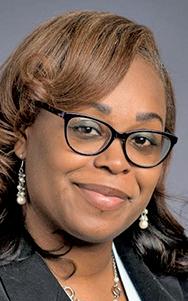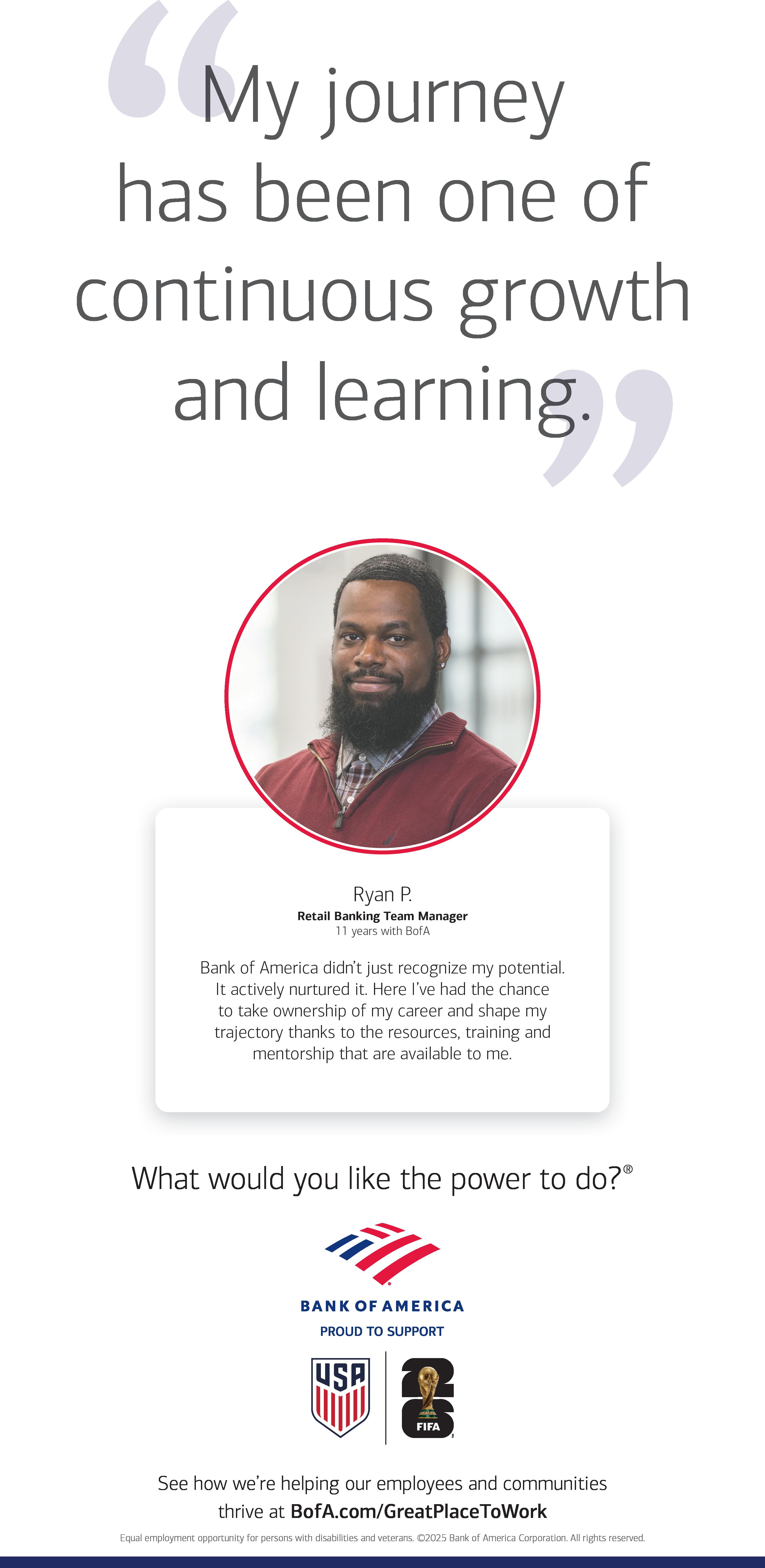moneywise


n Financial advisors share their top holiday budgeting tips.
~ Page B11 ~

Protecting generational wealth
Plan for the future to secure your family’s most important assets
By StatePoint
In the coming years, Baby Boomers are poised to pass down an estimated $17 trillion in home equity to their children, according to a recent Freddie Mac survey.
But whether or not you’re among the 75% of homeowners in this generation planning to leave your current home or the proceeds from a home sale to family members when they pass away, having a clear estate plan is critical to ensuring your wishes come to fruition. Without one, your future heirs may face complex ownership issues, legal disputes and even the loss of family property.
Heirs’ property, also referred to as a tangled title, is created when a family member dies without a will or court document passing their property to a specific heir or heirs.
To help your family plan for the future, Freddie Mac is sharing information about some of the pitfalls that occur in the absence of an estate plan, as well as steps you can take to protect the wealth you’ve built over your lifetime.
Tangled titles
Heirs’ property, also referred to as a tangled title, is created when a family member dies without a will or court document passing their property to a specific heir or heirs. When this happens, the property may be transferred by inheritance to multiple family members who each have equal rights to use and occupy the property. Unfortunately, this can lead to messy legal disputes among family members, limited access to resources, and loss of generational wealth due to forced sales or costly legal battles.
These disputes are common in this scenario because each heir has shared responsibilities regarding the property. For example, all heirs will be expected to contribute to property-related taxes and upkeep, which can become difficult to
See WEALTH, B12

n Demand will grow for financial planners who can better meet women’s needs.
~ Page B12 ~


By StatePoint
Financial tips for women
Women face unique financial challenges, such as career breaks for caregiving and gender wealth gaps.
Certified financial planners professionals are offering insights into some of these challenges, along with tips to help women build wealth and achieve financial independence.
The Challenges
Wealth gap: Across all workers nationwide, women were typically paid 75 cents for every dollar paid to a man in 2023, a figure that’s held steady for decades. Given this persistent wage gap, it’s no surprise that the TIAA Institute finds that women have 30% less in retirement income than men, a big issue considering that American women live 5.8
years longer on average.
Caregiving roles: Women are often the primary caretaker to children and other family members, such as elderly parents, and are more likely than men to take time off from work to fulfill this role. This can impact long-term savings, professional advancement opportunities and Social Security benefits.
Health issues: While no one likes to imagine getting sick or feeling unwell, the unfortunate reality is that 1 in 8 American women will develop breast cancer in her lifetime. Other women’s health conditions, while not life-threatening, can also be costly to manage. Menopause, for example, associated with more than 100 symptoms, costs U.S. women $26.6 billion annually in medical expenses and lost work,

according to the Mayo Clinic.
Financial abuse: Financial abuse is a common form of domestic abuse whereby a member of the household seizes control over another’s financial resources. While financial abuse transcends socioeconomic boundaries, the majority of victims are women. The Solutions
So how can women overcome these challenges? Here are several strategies for building wealth:
• Be proactive about potential health issues. Understand the price tag involved for care and adjust your budget accordingly. Have disability insurance to replace income should a medical condition sideline you.
• Establish an emergency fund.
• Begin investing in a well-diversified portfolio as early as possible.
• Build retirement savings by paying yourself first with each paycheck, maximizing contributions to tax-advantaged accounts.
• Create an estate plan to ensure your wishes will be met should you not have the capacity to speak for yourself.
• Educate yourself on finance and investing through workshops, books or by consulting with a professional. Understanding the financial challenges you could face and the solutions to overcome them can help you pave the way to a secure future.

By StatePoint
Holiday season expenses are a given, but with a bit of planning and effort, you can easily include them in your budget. However, amid inflation, you may have concerns about balancing a merry holiday season with good money management.
Certified financial planners professionals are sharing their top tips for keeping finances intact throughout the season.
Prioritize expenses:
Examine your winter budget and see how much extra you have left for holiday-specific spending (e.g., gifts, decorations, hosting and travel). A financial advisor can help
Holiday budgeting 101
Financial advisors share their top tips
you adjust for these additional expenses, as well as fit a holiday budget into your long-term plans. Remember, it’s important to keep your expectations flexible so that if you overspend in one area, you can reduce spending elsewhere. For example, if seeing family is a priority but visiting involves pricey airfare, consider suggesting a Secret Santa so that everyone is responsible for buying just one gift. Or, if you want to bring loved ones together to celebrate but need to trim expenses, consider hosting a potluck. Your guests might love a chance to contribute their favorite dish.
Find deals: Leverage technology tools to
find deals when online shopping. Consider using a browser extension to automatically test coupon codes and ensure you have the lowest price possible or to learn when the price of an item has dropped.
Practice self-care: Give yourself the gift of a stress-free season by setting spending boundaries. This means being guided by your intentions, not peer pressure, when it comes to gift-giving, charitable giving and other areas where spending can become competitive.
Plan for next year: Get a head start on next year’s festivities by setting aside a little money from each paycheck into a high-yield

For help examining income and expenses during the holiday season, visit LetsMakeAPlan.org to find a CFP® professional near
Give yourself
It takes planning to have a financially holiday season, but entering 2026 without additional debt will make it worth the
Understanding impact of retiring the penny
By Kyla Pollard, Group Manager, Retail Banking, Commerce Bank
After more than 230 years, the U.S. government has stopped making pennies, which will affect how you pay for things with cash. This historic shift means there are a few things you need to know.
When we say, “The penny is retiring,” it means the U.S. Mint will not make more new pennies, however, you’ll still be able to use them for
purchases. As pennies get lost or damaged, they will not be replaced with new ones.
There are currently about 114 billion U.S. pennies in circulation, and the final batch was minted in June 2025. The main reason for the end of the penny is cost: it takes 3.7 cents to make each penny — nearly four times what the penny is worth. Ending new penny production is expected to result in an annual savings of $56 million.
Another factor is
that Americans are using cash less often, opting instead to use cards or apps to pay. Nearly half of Americans say they don’t typically use cash at all. The U.S. won’t be the first country to stop making its smallest coin. Canada, Australia and New Zealand discontinued their smallest coins over the last few decades. These countries implemented rounding for cash payments while keeping exact prices for electronic

payments. As new penny production ends, stores will start rounding your total to the nearest 5 cents. Here’s how that will work:
• If your total ends in 1, 2, 6, or 7 cents, you pay less (round down).
• If your total ends in 3, 4, 8, or 9 cents, you pay more (round up).
Sales tax complicates this process because tax calculations often create cent amounts. Local governments may provide
additional guidance on handling these situations. Your pennies will still be legal tender. Here’s what you can do with them:
• Spend your pennies while stores still accept them.
• Deposit them at your bank. Most banks will exchange pennies for other money, though some require rolled coins. Commerce Bank doesn’t require coins to be rolled, and many branches have a coin machine to verify the total.
• Check for valuable
copper pennies. Pennies made before 1982 contain 95% copper and might be worth more than face value.
• Keep a few as keepsakes to remember this historic change. The end of the penny represents a practical step toward a more efficient monetary system that matches how people conduct transactions today. Understanding the economic impact of the penny’s retirement will help you prepare for this significant change in American currency.

By StatePoint
Women today control more money than ever before and are expected to inherit $30 trillion in wealth over the next decade. As women reshape the financial picture in the United States, demand will grow for financial planners who can better meet their needs. One way to fulfill that demand? Bring more women into the financial services profession. Here are several reasons why now is the right time for women to get their certified financial planner certification.
Women are hitting roadblocks: Women are taking the financial reins in most households, with more than 2 in 3 women serving as their household’s primary decision-maker for investments. Yet many are hitting roadblocks when it comes to their confidence in topics such as managing investments. Women financial planners are uniquely qualified to help other women build knowledge in these areas and achieve their financial goals.
Wealth
Continued from B9
Women helping women
The role of women financial planners

Women clientele value people over machines: Despite the rise of automated financial planning tools, 56% of women say a financial planner who provides a broad, comprehen-
manage collectively. Additionally, major property decisions often require agreement among all heirs, which can make it difficult to maintain, improve or sell the property. As generations pass, the property may be further divided among new heirs, complicating ownership even more. Lacking a clear legal title, heirs often struggle to qualify for resources like home equity loans or disaster relief funds, leaving properties vulnerable to foreclosure or forced sales.
sive perspective and expertise is the resource they trust the most to help them meet their financial goals.
More specifically, women clients seek empathetic financial planners who
Avoiding heirs’ property
Planning for the future helps prevent legal and financial complications like heirs’ property. Here are steps to take to protect your family’s property and wealth:
• Create a will or trust. Work with a trusted legal
communicate complex concepts clearly and craft tailored solutions. Firms that want to stay competitive in today’s climate are focusing on attracting and retaining women plan-
advisor to create an estate plan that can ensure your property is passed down as intended.
• Establish a power of attorney. Appoint someone you trust to manage your property and financial affairs in your absence.
ners, who research shows tend to excel in these very areas.
Support is here: Only 24% of CFP professionals today are women, but
• Develop a wealth management plan. This can help you and your family prepare for unexpected situations and emergencies.
Sponsored Content
CFP Board’s multi-faceted initiative, Accelerate & WIN, aims to boost these numbers while fast-tracking women’s influence in the profession. In addition to conducting ongoing research to uncover the barriers to gender diversity in the field, CFP Board administers scholarships to qualified candidates to widen access to CFP certification and empowers women and girls to enter the field through career fairs and other events.
The right credentials help: CFP certification helps women advance their careers, boost earning potential and open new opportunities. According to a report from the Aite Group, women CFP professionals report higher career satisfaction than other women advisors and are more likely to own their own firms. Learn more about the CFP certification journey at CFP.net.
As more women gain economic power, women financial planners are uniquely positioned to help them grow and protect their wealth.
• Get smart about estate plans and other wealth management topics. Freddie Mac CreditSmart Essentials, a customizable and free online course, has all the tools, resources and lessons you need to help achieve your financial goals.
Taking proactive steps in estate planning is crucial for protecting your assets and ensuring they benefit future generations.
The key players in your homebuying journey
By Daulton Hillemann, Mortgage Banker, Stifel Bank & Trust
Buying a home is one of the most exciting and sometimes overwhelming milestones in life. Whether you’re a first-time buyer or a seasoned homeowner, the process involves a team of professionals working together to help you find, finance, and close on your dream home. At Stifel Bank & Trust, we believe that understanding the roles of each person involved can help you make confident decisions throughout your journey.
Here’s a breakdown of the players you’ll encounter when buying a home.
The Listing Agent
The listing agent represents the seller and
is responsible for marketing the home, setting a competitive price, and negotiating offers. While they don’t work for you directly, they play a crucial role in the transaction. A good listing agent ensures the home is presented well, coordinates showings, and communicates with your agent to move the sale forward.
The Buyer’s Agent Your buyer’s agent is your advocate. They help you find homes that match your needs and budget, schedule tours, and negotiate on your behalf. They also guide you through the offer process, help interpret contracts, and coordinate with other professionals involved in the transaction.
The Mortgage Loan Officer
That’s where I come in.
As a mortgage originator, my role is to help you understand your financing options, get pre-approved, and secure the right loan for your situation. I’ll walk you through interest rates, loan types, and monthly payment estimates. Once you’ve found a home, I’ll work with our Stifel Bank & Trust underwriters and processors to ensure your loan moves through the process efficiently.
The Home Inspector
After your offer is accepted, a home inspector evaluates the property’s condition. They check the roof, foundation, plumbing, electrical systems, and more. The inspection report helps you under-
stand any issues that may need repair or could affect the value of the home. Depending on the findings, you may renegotiate with the seller or request repairs before closing.
The Appraiser
The appraiser is hired by your lender to determine the fair market value of the home. This protects you from overpaying and ensures the home value supports the loan. If the appraisal comes in lower than the purchase price, you may need to renegotiate or bring additional funds to the table.
The Title Company
The title company researches the property’s history to ensure there are no legal issues, like unpaid taxes or ownership
disputes that could affect your purchase. They also handle the closing process, prepare documents, and facilitate the transfer of ownership.
The Insurance Agent Before closing, you’ll need to secure homeowners insurance, also known as hazard insurance. Your insurance agent helps you find a policy that protects your home and belongings from damage, theft, or liability. This coverage is required by lenders and gives you peace of mind as a new homeowner.
To learn more about the homebuying process, visit https://stifelbank. banzai.org/wellness for educational resources or contact Daulton Hillemann at hillemannd@
stifelbank.com or (314) 317-6926
Get started here: www. StifelMortgage.com or call (314) 317-6900 for additional information. Stifel Bank & Trust, NLMS #375103
Please contact your Stifel Bank & Trust Lender for loan program details. This information is provided for informational purposes only and is not intended to extend consumer credit as defined by section 1026.2 of Regulation “Z.” Interest rate, program terms, and conditions are subject to change without notice.
Stifel Bank & Trust offers mortgage services to clients of Stifel and current and prospective homeowners in the St. Louis Metro Area and Illinois.

Reframing your relationship with money
By Orvin T. Kimbrough Chairman & CEO, Midwest BankCentre
Nearly 12 million Americans take out payday loans each year — paying interest rates that can top 300%. I know what that feels like, I lived it.
I grew up in poverty. I know what it feels like to wonder if the lights will stay on or if food will stretch until the end of the month.

Later in life, I saw the payday loan cycle up close — how it traps people, how it tempts you with quick relief but leaves you bound to long-term pain.
I still remember standing in the car dealership, in what felt like a payday loan office, signing papers I knew would cost me significantly. I thought it was survival, but it was a trap.
Money is never just about numbers. It’s about the story you believe, the habits you practice, and the company you keep.
That’s why I built the Triple R Method™ — Reframe, Reclaim, Rename. It’s not just about career growth. It also applies to how we approach money. Here’s how to break free and step toward financial freedom.
1. Reframe Your Thinking
For years, I carried a hidden money story: “I’ll always struggle.” When
you’ve lived with less, it’s easy to believe that lack is your destiny. But here’s the truth: money doesn’t have to master you. You can learn to master it. Wealth isn’t built in one leap; it’s built step by step.
When I moved from poverty into professional life, I had to reframe my mindset. I wasn’t just surviving anymore; I was learning how to multiply. That shift allowed me to see money as a tool.
Your Move: Write your money story. Is it scarcity-driven (“I’ll never get ahead”) or growth-driven (“I can build wealth over time”)? Then reframe it.
Scripture says, “As a man thinketh in his heart, so is he” (Proverbs 23:7).
2. Reclaim your personal agency
Money management isn’t just about income; it’s about ownership. Too often, people wait for a raise, a windfall, or a lucky break. But freedom begins when you take control of what’s already in your hands.
When I stepped into banking, I didn’t have domain expertise. What I had was discipline. I wasn’t a lazy learner — I studied, asked, applied. The same principle applies to finances: you can’t be a lazy learner with money.
Your Move: Build a budget. Start investing, even small amounts. Educate yourself on how money works.
Scripture says, “The plans of the diligent lead
surely to abundance” (Proverbs 21:5).
3. Rename your social networks
Your financial habits are shaped by your circle. If everyone around you normalizes debt, and overspending, you’ll absorb those values.
I’ve had to make tough decisions about who I spend time with. Some friends weren’t aiming for growth, and if I kept walking with them, I would’ve stayed small. But when I started spending time with people who talked about ownership and building, wealth began to feel normal — not foreign.
Your Move: Audit your money circle. Who talks about building, saving, and investing? Who talks only about spending? Choose to walk with those that model financial wisdom.
Scripture says, “Walk with the wise and become wise, for a companion of fools suffers harm” (Proverbs 13:20).
The bottom line
Financial freedom isn’t just about dollars. It’s about your mindset, your habits, and your networks. Reframe your thinking. Reclaim your agency. Rename your networks. Do that, and money stops being your master.
Scripture says, “You cannot serve both God and money” (Matthew 6:24)
Orvin T. Kimbrough is author of “Twice Over a Man.”


Give yourself the gift of a stress-free season by setting spending boundaries.
Update your routine
Ways to tighten up your household budget
By StatePoint
Sponsored Content. Planning your household budget is much easier when your monthly bills are as low as possible and predictable. Here are three common expenses you can rein in with a few smart strategies:
Insurance: Bundling your policies through one provider, like homeowners and auto or renters and auto, can help you save. There are also steps you can take to keep your premiums in check, such as making key home improvements and avoiding filing small claims. When it comes to auto insurance, a safe driving record and modern
safety features in your car can help keep rates manageable.
Internet: Fast, reliable home internet doesn’t have to break your budget. Thanks to new options, high-speed service can now be both affordable and consistent. T-Mobile Fiber is expanding access to gigabit-speed broadband with new plans available in select locations across the United States. Plans come with a 5-year price guarantee (exclusions like taxes and fees apply), unlimited data, symmetrical upload and download speeds and no monthly equipment fees, installation charges or annual contracts. Each plan also comes with T-Mobile Tuesdays: weekly perks that include exclusive deals on gas, dining, entertainment and
more. Whether you’re a remote worker, streamer or smart home enthusiast, there’s a plan that fits your needs, without automatic price hikes. And now is an especially good time to make the switch, thanks to current promotions.
Groceries: Subscription-based grocery services make meal planning on a budget a breeze, giving you the ability to buy only the groceries you need. Many services pre-fill your cart with go-to items, helping you avoid impulse buys. Make sensible purchasing decisions that are good for your health, and your pocketbook.
With a few updates to your routine, you can lower your monthly expenses and plan your budget well into the future.


